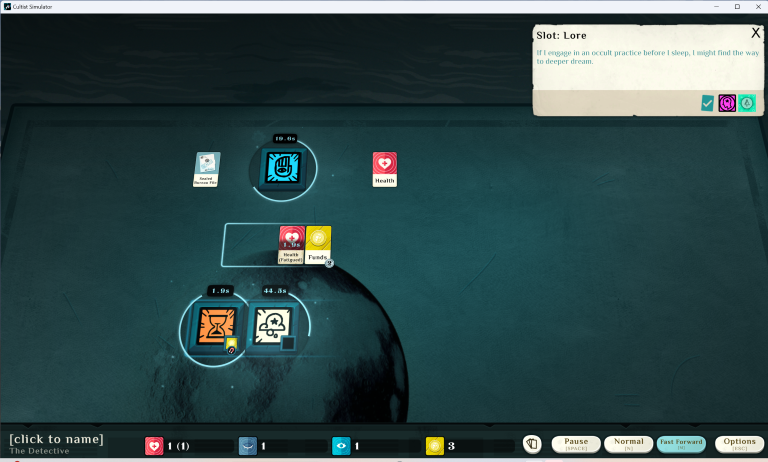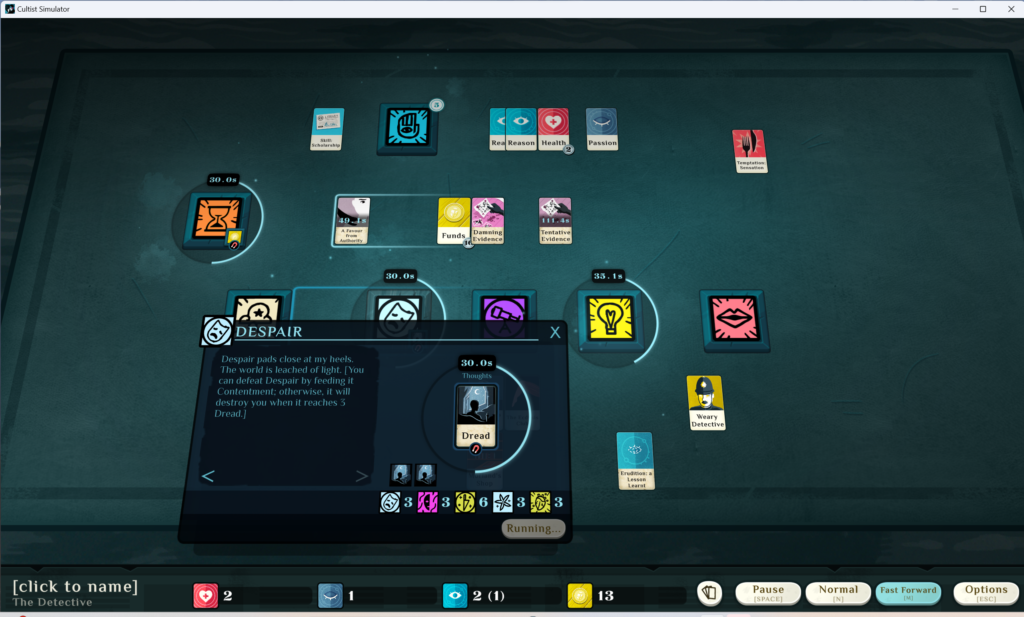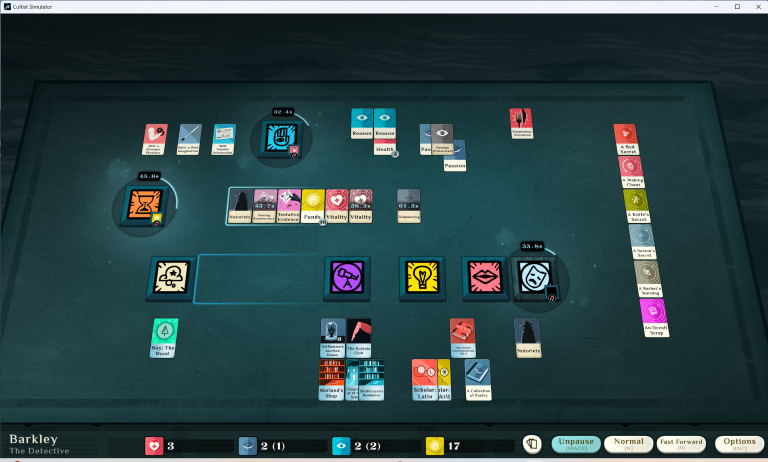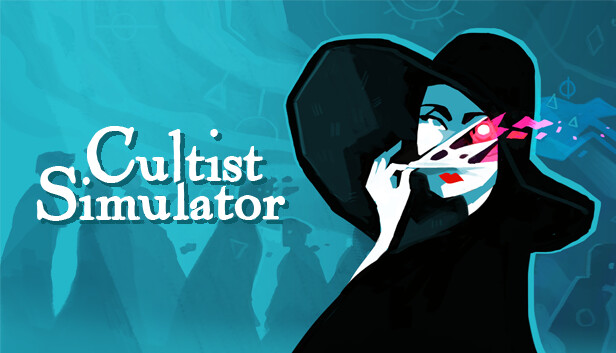
Not all doors are wounds, but all wounds are doors.
Cultist Simulator is a video game developed and published by Weather Factory, that much at least I know is true. Any other facts about the game are difficult to pin down. Mechanically it is a resource management game about collecting and spending cards to stay alive and achieve your unearthly goals. The game is played almost entirely on a single screen and you can arrange your pieces however you wish. You must work to earn “funds” which the game automatically takes from you ever minute or so, representing your character’s need to spend money on food and shelter to survive.
Simple, keep working to earn funds, and you get to keep living. In order to work, however, you must spend other currencies: maybe you exhaust your Health on manual labor, or your Reason working in a legal office, or your Passion working as an artist. These refresh after a short time but if a desperate situation arises that requires one (falling ill and needing your Health to survive) you’ll be sorry if they’re on cooldown.
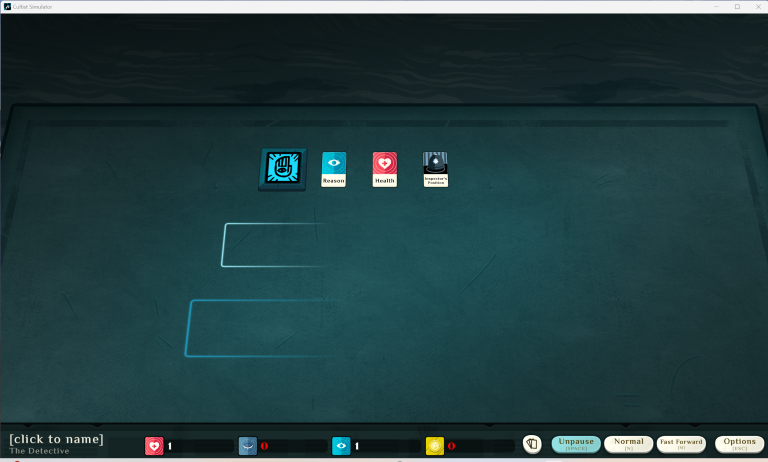
At first you don’t have much to worry about. Your basic resources refresh quick enough that you’re never in danger of failing due to running out of money. You have a big open board with only a few ticking clocks. As you progress you unlock more and more cards that give you access to new opportunities as well as new dangers to keep track of. By combining cards with the square tiles you start a new timer. Combine your job with the work tile to work, combine Health with the Explore tile to take a brisk walk and see the city, etc.
As you may imagine, this starts to become complex.
Eventually, you’re juggling a dozen spinning plates. They’re beautiful plates: the game uses simple icons and striking colors to keep everything distinct. With experience you can understand what each of these cards represents. And despite the simplicity of the design, you become immersed in the life of the scheming cult leader you aspire to be.
As you survive the early game rival seekers of knowledge arise to challenge you. You’ll recruit pawns to your cause and send them on investigations to uncover the hidden lore of the city. Studying improves your skills and unlocks scraps of forbidden lore. There’s a crazy amount of depth to this game and it does not tell you how to do anything. Learning how to play is half the fun but boy they don’t make it easy. The game makes it clear that you should expect to fail runs constantly: starvation, disease, depression, madness, and even the police can bring your run to an end. I have never won.
I’m not even sure if I’ve gotten close. The goal is to “ascend” by collecting more and more powerful bits of eldritch knowledge and choosing a path to ascension.
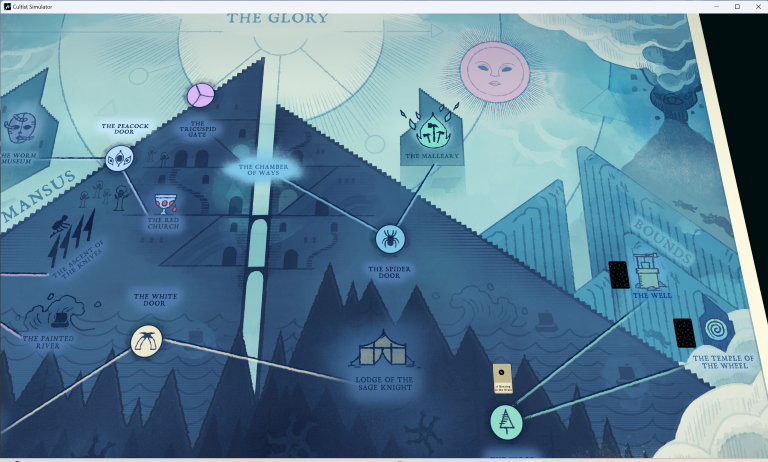
This is a good time to talk about the writing. There is no direct narration or audible dialogue, just snippets of text gleamed in the descriptions on cards and the resolution of activities. But what they’ve written there is mysterious, evocative, and draws the curious player deeper into the lore of the game. Sometimes you’ll even be rewarded with a clue for how to proceed. I adore the semi-lovecraftian mythos they’ve built.
Who is this game for?
I am so close to loving this game. The art, the writing, and the music have pulled me back multiple times over the last few years. I’ll spend hours on a run, studying ancient tomes and savouring the flavor text, wondering what secrets I might uncover next. But eventually I run out of new things to read and I’m just staring at a board full of cards as time ticks down wondering if dreaming the path to “The Spider Door” with an “Invocation of the Ivory Dove” will somehow unlock the next step on the path to ascension. The game makes me feel like I’m losing my mind, which is thematic, but frustrating.
And once I’ve sunk multiple hours into a run only for the secret mystical police to break down my door and send me right back to the start… I have to put the game away for a while.
This game fits a very unique niche: strategy gamers who like resource management and solving puzzles with an occult theme. I consider myself in that demographic but I don’t know if I’ll ever manage to finish a run. For fun I looked up what an endgame screenshot looks like:
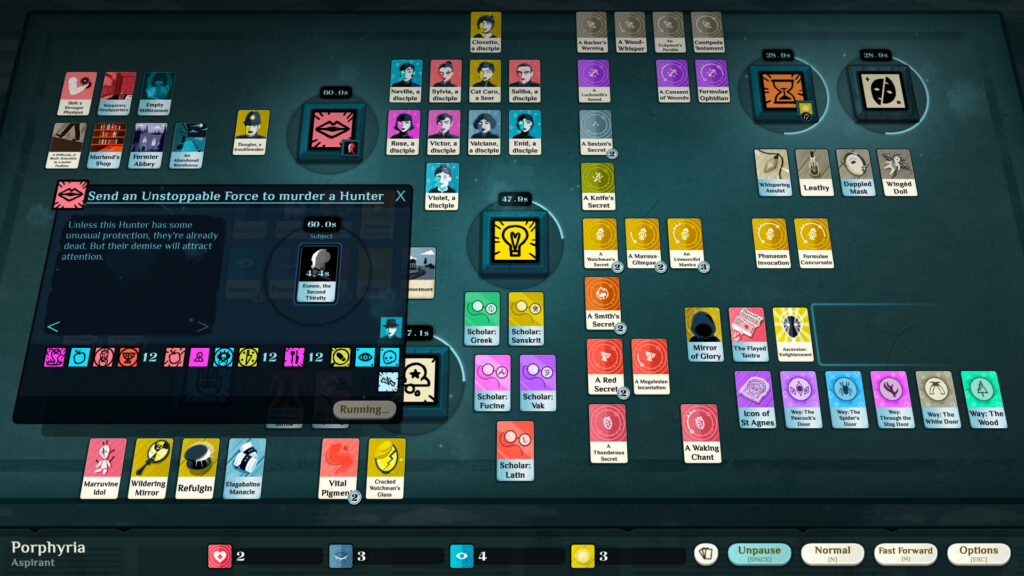
Maybe ascension isn’t for me.

